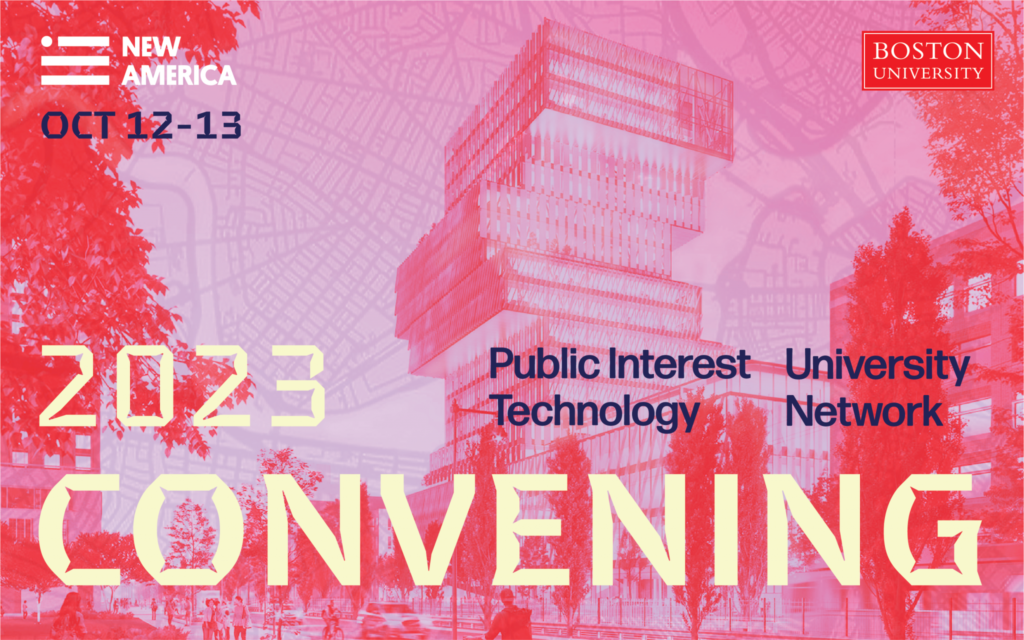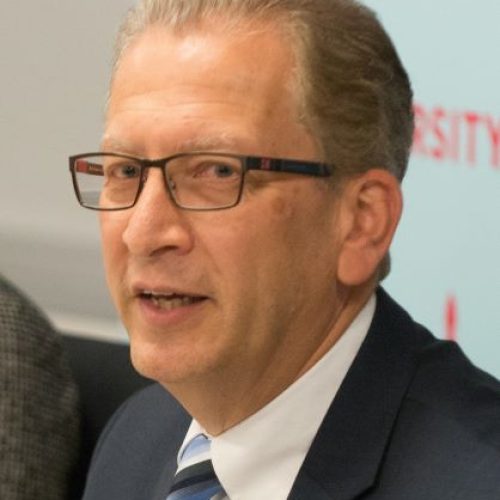
Q&A With Azer Bestavros, Associate Provost for Computing & Data Sciences at Boston University
Boston University (BU) will host the 2023 Public Interest Technology University Network (PIT-UN) Convening on Oct. 12-13 at the newly constructed Center for Computing & Data Sciences. The theme of the conference, Partnership for Impact, will explore university partnerships with entities such as government, corporate, media, and community organizations. The event goal centers on highlighting tech challenges each of the entities face and where and how universities can make a real-world impact in these sectors.
About the author: Azer Bestavros, associate provost for computing and data sciences of Boston University, which is hosting the 2023 PIT-UN convening, shared the institution’s vision for the event and the impact it aims to achieve to address tech challenges across sectors.

Increasingly, our society has to navigate challenging sociotechnical issues ranging from privacy and security to algorithmic fairness and bias in AI. These are issues that government, public, and private organizations must tackle collectively, and ones that universities are best positioned to address through collaborative, interdisciplinary research.
Another challenge shared by all these organizations, especially those in the public sector, is the lack of access to data science talent, given that our education systems do not expose students to opportunities that would prime them for pursuing careers in public interest technology.
Beyond these common challenges, there are specific challenges that are unique to certain sectors. For example, nonprofit organizations, local governments, and community groups lack the human and technical infrastructures that allow them to leverage the large amounts of data they have or can access or make available to advance evidence-based advocacy and policymaking. Universities are well positioned to be the laboratories for these organizations.
Partnership for Impact will be designed to discuss challenges that are common and unique to each sector and will highlight the role of universities in mitigating these challenges.
We are very excited to plan a Member Day that serves the Network. Members should watch for a survey from the host committee to elicit input from our members on the topics that are top of mind for them.
Generally, member institutions can look forward to the opportunity to share their successes and challenges with other member institutions. In addition to trading notes, we hope members come away with new ideas and build their networks, which we hope will lead to collaborative PIT programming.
As a host institution, we at BU look forward to showcasing our experience in partnering with other institutions and the city of Boston so that members come away with an idea of how PIT can be implemented in large urban settings through regional partnerships.
Going back to the common challenge all sectors face about the lack of talent, we clearly need to work on effective and scalable approaches that introduce public interest tech to our undergraduates in order to create pathways for career trajectories in PIT. The typical data science student has no idea about the challenges cities face and how their work can make a difference in their own community. We can mitigate this challenge by bringing end users such as government and community organizations to the academic space through experiential learning programs that weave problems sourced from the public sector into curricular and co-curricular offerings, internship opportunities, career days, etc.
At BU we’ve developed a robust infrastructure to facilitate partnerships with the public sector through experiential learning programs such as BU Spark! a technology incubator for real-world projects sourced from industry and the public sector, software engineering capacity at the Hariri Institute for Computing, and the Hub for Civic Tech Impact at the Faculty of Computing & Data Sciences (CDS). While we are proud of our achievements, we also know there is always room to improve and PIT-UN gives us the opportunity to learn from our peers.
BU is at a momentous time in our institution’s history. We have made a large-scale investment in bringing data science to the forefront through the creation of the Faculty of Computing & Data Sciences (CDS), an academic unit that affords us the opportunity to develop societally relevant interdisciplinary research and education programs, starting with a clean slate, and thus not subject to disciplinary strictures.
Hosting PIT-UN in CDS’s iconic new home at the heart of the BU campus will allow us to showcase the progress we’ve made, building an academic unit on a solid foundation of partnerships with other academic units and research centers at BU, such as the Initiative on Cities, the Tech & Policy Initiative at the Law School, the Emerging Media Studies at the College of Communication, the Howard Thurman Center for Common Ground, and the Center for Antiracist Research, among others.
BU is also at the heart of Boston. If any city can be a catalyst for PIT partnerships, Boston is that city. With an unmatched, diverse set of colleges and universities — large and small, public and private, focused on undergraduate, graduate, vocational, and professional education — our region is ripe for partnerships not only between universities, but also with the wealth of local public, private, and nonprofit organizations. We see ourselves as the anchor for PIT in this region and hope to accelerate our partnerships with other institutions to that end.
While we recognize that every institution’s priorities may be different, we hope the BU experience can offer examples of how to embed public interest in the university structure, e.g., centers, curriculum, etc.
Student-led efforts have been growing in the PIT space for some time. However, we haven’t done much yet to celebrate those efforts or to bring the student voices to the conversation. We plan to address that by adding a student-led session to the convening schedule in recognition of the growing amount of student leadership and student-led groups in the PIT space.
Thanks to PIT-UN, BU received a joint grant with Howard University to strengthen student-led efforts in PIT and we hope to involve students from our institutions along with others to lead the student session.
Similarly, we plan to reach out to community organizations and governments we have partnered with over the years to participate as panelists and attendees at the convening.
I feel obligated to ensure that the barriers between the Faculty of Computing & Data Sciences and our local community are porous. One of my personal endeavors is to ensure that the convening gets as much publicity within Boston as possible. We are planning to open some of the sessions to the public by allowing them to engage even if only virtually. We see the convening in 2023 as a catalyst for engagement between the public and CDS.
